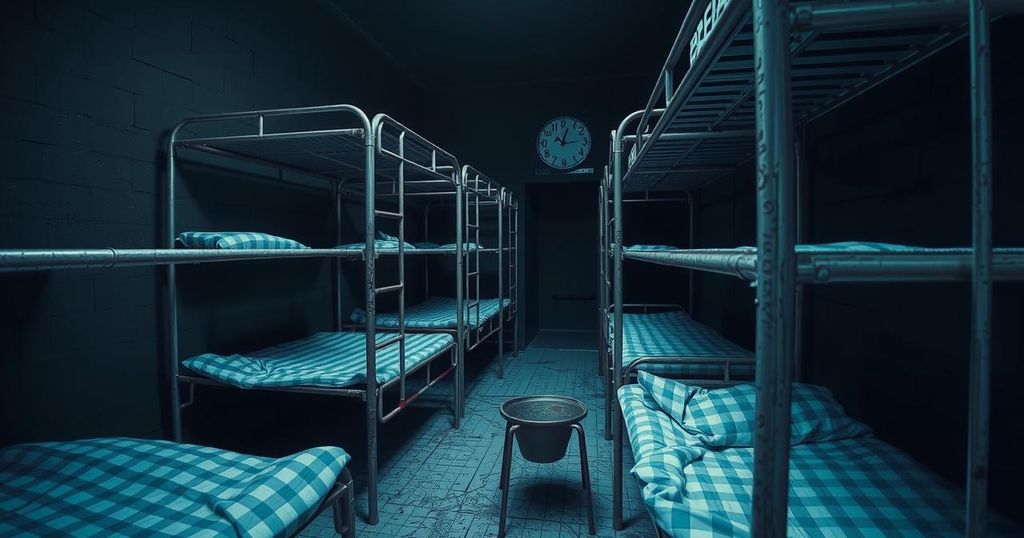World news
AE, ASIA, BUKELE, CUBA, DEMOCRACY, DIANA YATES, EL SALVADOR, HUMAN RIGHTS, JUDICIARY, LIFE SCIENCES, MARCO RUBIO, NATIONAL SECURITY, NAY, NEWS BUREAU, NORTH AMERICA, PEARL HARBOR, PHILIPPINES, POLITICS, SOUTH AMERICA, TREN DE ARAGUA, TRUMP, U. S, UNITED STATES, VENEZUELA
Lena Nguyen
0 Comments
Venezuelan Immigrants Deported to El Salvador: An Examination of Legal and Human Rights Issues
On March 15, 2023, over 200 Venezuelan immigrants were deported from the U.S. to El Salvador, accused of gang affiliations. This decision stemmed from an invocation of the Alien Enemies Act due to concerns about Venezuelan gang activity. Salvadoran President Bukele’s offer to detain deportees points to a controversial agreement between the two nations. The deportees face harsh conditions and are at risk of significant human rights violations within the Salvadoran prison system.
On March 15, over 200 Venezuelan immigrants were deported from the United States to El Salvador, accused of gang involvement. This unusual deportation was justified by the U.S. government as a response to an alleged invasion by the Venezuelan gang known as Tren de Aragua. By invoking the Alien Enemies Act, President Donald Trump authorized the deportation, a statute historically reserved for wartime actions.
El Salvador was chosen as the deportation destination due to an agreement made by Salvadoran President Nayib Bukele, who proposed using his country’s prisons to detain deportees. This offer was accepted by the Trump administration, which allocated $6 million for the Venezuelan detainees’ holding costs for one year, suggesting a controversial and transactional diplomatic relationship.
The legal landscape regarding the deportations revealed tensions surrounding the use of the Alien Enemies Act. A U.S. judge temporarily blocked the use of this act in this context, a ruling that was affirmed by an appeals court as the deportees arrived at a high-security prison in El Salvador.
Conditions in the detention facility have drawn criticism. Reports describe detainees subjected to harsh environments, characterized by overcrowded cells with inadequate sleeping arrangements and poor provisions for food and sanitation, raising significant human rights concerns. Many detainees were arrested based solely on their appearance as non-U.S. citizens with tattoos, despite evidence suggesting that tattoos are not a method for identifying gang members.
El Salvador has a troubling history regarding human rights, particularly highlighted during its civil war from 1979 to 1992, which resulted in numerous abuses. Although peace accords aimed to rectify such issues, systemic abuses persisted, exacerbated by the rising influence of gangs and the government’s heavy-handed responses. The current administration has continued to implement emergency measures that have led to widespread arrests and the suspension of fundamental rights.
Salvadoran society has been heavily influenced by the legacy of violence stemming from its civil conflict. The emergence of powerful gangs correlates with mass deportations of gang members from the U.S. in the 1990s. President Bukele, seeking to tackle gang violence, exhibits patterns reminiscent of his predecessors, facing accusations of making secret deals with gang leaders to manipulate violence rates.
The evolving relationship between the U.S. and El Salvador under President Bukele and Donald Trump points to a strategic alignment that may have implications for future diplomatic interactions. Bukele’s open acknowledgment of his alignment with Trump showcases a bilateral partnership rooted in shared governance philosophies.
The future for the deported Venezuelan immigrants remains precarious. The Salvadoran government labels them as “terrorists,” with little indication of their release. The lack of consular support and judicial oversight leaves these individuals in a gray area of rights, effectively rendering them stateless and beyond the reach of legal protection as they navigate the Salvadoran prison system.
The deportation of over 200 Venezuelan immigrants to El Salvador has raised substantial legal, humanitarian, and diplomatic concerns. This unprecedented action, justified by invoking the Alien Enemies Act, has elicited severe criticism regarding human rights violations and the conditions faced by the deportees. The historical context of El Salvador’s governance, particularly in the wake of its civil war, underscores ongoing challenges related to justice and human rights. The evolving relationship between the United States and El Salvador under authoritarian governance introduces potential long-term ramifications for immigrants caught in this geopolitical dynamic. Overall, the situation underscores the urgent need for transparency, accountability, and reform in both countries’ immigration and criminal justice systems.
Original Source: news.illinois.edu




Post Comment